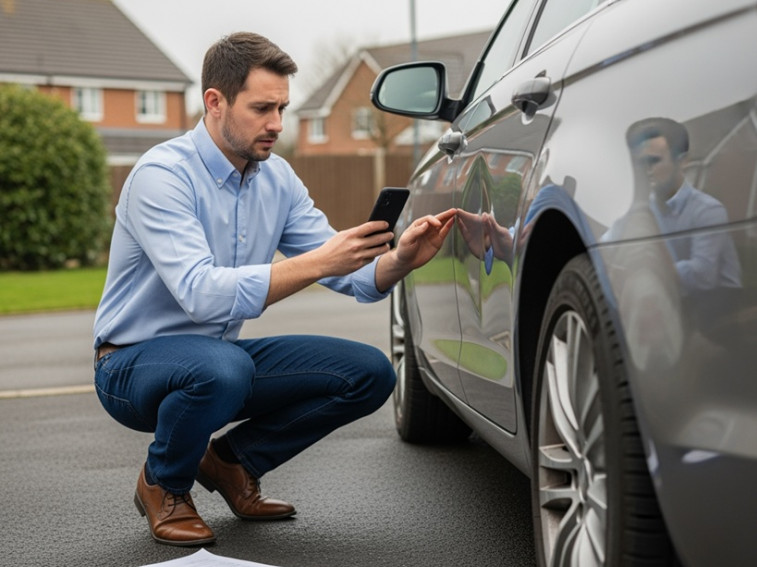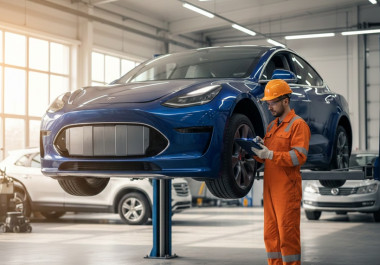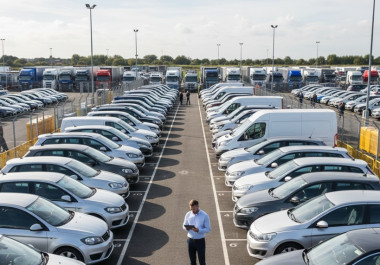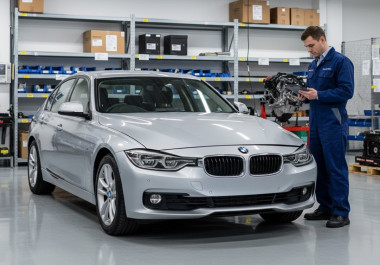Buying a car at auction can be an exhilarating experience, offering the promise of a great deal and the potential for long-term business investment. However, there are instances when the vehicle may arrive with issues that weren't mentioned during the sale. In this article, we will explore how to handle a situation where you receive a car with unexpected damage, providing you with practical post-purchase steps and insights into resolving disputes. Whether you're a seasoned business owner or new to auctions, this guide is here to help you navigate any unexpected issues with confidence and clarity.
Understanding the Risks and Realities of Auction Purchases
When participating in vehicle auctions, such as those available through RAW2K, it's essential to remember that most vehicles are sold "as seen." Although detailed descriptions and photographs are generally provided, there remains a risk of undisclosed damage from auction cars. This risk can sometimes lead to unpleasant surprises once the car is in your possession.
The Nature of Auction Sales
The excitement and speed of an auction can sometimes mean that minor (or even major) flaws are overlooked in the rush of the moment. Often, critical aspects like engine performance or overall aesthetics are prioritised during the bidding process, leaving structural or hidden issues undisclosed until later. Having a clear strategy for auction dispute resolution should such incidents occur is essential for protecting your investment.
Immediate Actions Upon Discovering Undisclosed Damage
If your car arrives with damage that wasn't disclosed at auction, it's important to act promptly. The following steps can help safeguard your investment and set you on the path to resolving the issue effectively.
1. Document the Damage Thoroughly
Before proceeding with any further action, document every aspect of the damage with detailed photographs and notes. Ensure you capture multiple angles and specific areas of concern.
The Importance of Documentation: Detailed records act as evidence when approaching the seller or pursuing dispute resolution. Keeping a log of your findings, including the date and details of your inspection, can make a significant difference in your case.
2. Review Auction Terms and Conditions
Each auction house has its own set of terms and conditions outlining the scope of post-sale responsibilities. Carefully review these documents immediately after discovering any damage.
What to Look For: Terms related to returns, warranties, and clauses concerning damage disclosure are critical. Understanding these conditions will equip you better in any discussions or negotiations ahead.
3. Contact the Auction House or Seller Promptly
Reach out immediately to the auction house or the seller to report the issue. Provide them with all the documentation you have collected.
Direct Communication: Quick and calm communication often paves the way for an amicable solution. This step is crucial, especially when you need to initiate auction dispute resolution with the platform.
4. Arrange an Independent Inspection
If you haven't already, contact a trusted mechanic or automotive expert to conduct a full inspection of your vehicle. A professional report will offer an unbiased estimate of the extent of the damage and aid in determining the best repair strategy.
Expert Insight: An independent assessment not only confirms your observations but also provides necessary leverage when negotiating with the seller or during the dispute resolution process.
Logistical Considerations for Repair and Recovery
Beyond addressing the immediate issue of undisclosed damage from auction cars, several logistical steps must be undertaken to ensure minimal disruption to your business operations.
Organising and Managing Repairs
Once the damage is verified, coordinate with reputable repair shops to obtain multiple estimates.
Gathering Estimates: Collect quotes from several repairers to establish a fair understanding of repair costs. This also strengthens your case when discussing compensation.
Scheduling Repairs: If your vehicle is critical to day-to-day operations, consider temporary replacements such as rental vehicles to avoid business interruption.
Communicating with Stakeholders
The discovery of damage may affect your business operations and client expectations.
Internal Communication: Inform your team or logistics manager about the situation and discuss contingency plans.
Client Notification: If service disruptions are anticipated, proactively update your clients. Transparent communication maintains trust and demonstrates your commitment to resolving the issue.
Exploring Legal Avenues and Dispute Resolution
When a car purchased at auction arrives with unexpected damage, your legal rights might provide a route for compensation or repair cost recovery.
Understanding Your Legal Options
Potential Grounds for Claim: If the seller intentionally concealed the damage, you may have grounds for misrepresentation or breach of contract claims. Consulting with a solicitor experienced in vehicle transactions can offer clarity on your options.
Initiating the Resolution Process: Many auction houses have established protocols for addressing post-sale disputes. Before escalating the matter legally, consider engaging with the seller or utilising professional mediation services to reach a fair settlement.
Alternative Resolution Strategies
Negotiation and mediation are often effective strategies for reaching an agreement without lengthy legal proceedings. Present your documented evidence and expert inspection findings clearly to bolster your case.
Negotiation Tips: A composed, fact-based approach is more likely to result in a partial refund or repair cost coverage. Should the discussions stall, mediation offers a viable pathway to resolution.
Preventive Measures for Future Auction Purchases
Learning from challenging experiences is integral to improving future auction strategies. Here are some recommended practices to safeguard your interests:
Enhanced Pre-Purchase Inspection
Whenever possible, conduct or arrange a comprehensive pre-purchase inspection. If you can attend the auction in person, this will give you the advantage of a closer look at the vehicle.
Focus Areas: Check undercarriages, the vehicle's structural integrity, and signs of prior repairs. Don't rely solely on the images and descriptions provided online.
Leverage Online Tools and Reviews
Take advantage of the detailed listings and customer reviews available on platforms. For those interested in browsing car auctions, reading past buyer experiences can alert you to potential recurring issues, reducing the likelihood of surprises later.
Develop a Post-Purchase Checklist
A robust checklist can guide you through the essential steps immediately after buying an auction vehicle. This checklist might include:
-
Immediate visual and mechanical inspection
-
Comprehensive documentation of findings
-
Quick contact with the seller or auction house to report discrepancies
-
Scheduling an independent expert review
Establish Long-Term Relationships with Reputable Auction Houses
Working consistently with reliable auction platforms builds a foundation of trust and accountability, which can prove invaluable in the event of disputes.
Advantages of Trusted Platforms: They typically offer more responsive customer service and clear processes for resolving post-sale issues. For those new to the auction scene, registering with a reputable platform ensures you have access to support channels when needed.
Final Thoughts
Dealing with undisclosed damage from auction cars can be a challenging experience, but with the right approach, it can also serve as an opportunity to refine your auction strategies. Whether it's through diligent documentation, timely communication, or effective dispute resolution, every step you take helps protect your investment and prepare you for future purchases.
Key Reminders:
Document Everything: Detailed records are essential when addressing unexpected damage.
Know Your Rights: Familiarise yourself with the auction terms and pursue legal advice if necessary.
Act Quickly and Calmly: Swift communication can often lead to a satisfactory resolution.
Prepare for the Future: Use the experience to improve your pre-purchase inspections and develop effective checklists.
Every setback is a lesson, contributing to a stronger, more informed approach for subsequent auctions. With a proactive mindset and robust support channels, you'll be well-equipped to handle any situation, ensuring that every auction experience ultimately contributes to your business's growth and success.
Remember, if you're ever caught in the midst of a dispute or need expert advice following a challenging auction purchase, reliable support is available. Contact us to find the assistance you need.
Embrace each auction as an opportunity to learn, refine, and grow - ensuring that your future transactions are even more successful than the last.




